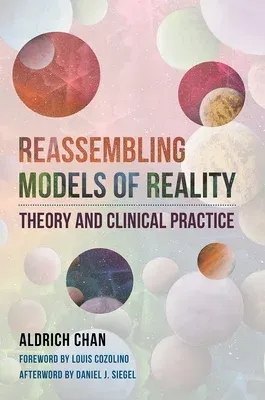Aldrich Chan
(Author)Reassembling Models of Reality: Theory and Clinical PracticeHardcover, 13 April 2021

Qty
1
Turbo
Ships in 2 - 3 days
In Stock
Free Delivery
Cash on Delivery
15 Days
Free Returns
Secure Checkout

Part of Series
Norton Interpersonal Neurobiology
Print Length
384 pages
Language
English
Publisher
W. W. Norton & Company
Date Published
13 Apr 2021
ISBN-10
1324015977
ISBN-13
9781324015970
Description
Product Details
Author:
Book Format:
Hardcover
Country of Origin:
US
Date Published:
13 April 2021
Dimensions:
23.11 x
15.49 x
3.56 cm
ISBN-10:
1324015977
ISBN-13:
9781324015970
Language:
English
Pages:
384
Publisher:
Weight:
771.11 gm